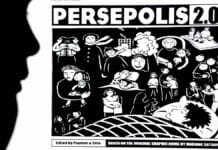Guy de Maupassant’s The Piece of String is a short story that explores themes of human nature, social judgement, and the destructive power of false accusations. Set in a small village, the story revolves around a seemingly trivial event —a man picking up a piece of string —and its far-reaching consequences.
Set in a small Norman village, the narrative centres around the character of Maitre Hauchecorne, an ageing farmer who finds a piece of string in the street. He picks it up in a seemingly trivial moment, but this act leads to significant and tragic consequences.
As Hauchecorne bends down to retrieve the string, he is observed by the local townsfolk, including the influential Maître Malandain, who is a rival of his. Shortly afterwards, a bag of money goes missing, and Hauchecorne becomes the prime suspect. Despite his protests of innocence, the villagers are quick to believe the worst about him, mainly due to his previous reputation and the gossip surrounding him.
Maupassant meticulously details Hauchecorne’s increasing desperation to clear his name. His efforts to convince others of his innocence are met with scepticism, and he becomes a victim of the village’s collective judgment. The story culminates in Hauchecorne’s realisation that his reputation is irreparably damaged, and he dies a broken man, consumed by the weight of public opinion and his inability to prove his truth.
Summary
The story begins in a bustling marketplace in the village of Goderville, where peasants gather to buy and sell goods. Among them is Maître Hauchecorne, an old Norman farmer, who notices a piece of string lying on the ground. Believing it might be helpful, he bends down to pick it up. However, his actions are observed by Maître Malandain, a former enemy.
Shortly after, a town crier announces that a purse containing 500 francs has been lost. Suspicion soon falls on Hauchecorne when Malandain reports seeing him pick up something from the ground. Hauchecorne vehemently denies the accusation, explaining that he only picked up a piece of string. Despite his protests, the townsfolk distrust him, interpreting his defensiveness as guilt.
The missing purse is eventually found and returned to its rightful owner, exonerating Hauchecorne. However, the damage to his reputation has already been done. Influenced by their initial suspicions and gossip, the villagers refuse to believe Hauchecorne’s innocence, insisting that his explanation about the string is a clever ruse.
Hauchecorne becomes obsessed with clearing his name. He repeatedly recounts the incident to anyone who will listen, hoping to convince them of his honesty. His obsession only fuels the villagers’ scepticism, as his desperation is interpreted as an attempt to cover up his guilt.
Hauchecorne, consumed by his inability to restore his reputation, falls into despair. His health deteriorates, and he eventually dies. On his deathbed, he continues to insist on his innocence, his final words being a reiteration of his story about the piece of string.
Analysis
The Piece of String is a poignant critique of societal norms and the often harsh judgments that arise from them. The story is notable for its exploration of the themes of reputation and the fragility of truth in the face of public scrutiny. Through the character of Hauchecorne, Maupassant illustrates how a single, innocuous action can spiral into a life-altering event due to the perceptions of others.
The narrative structure is tightly woven, focusing on Hauchecorne’s psychological decline. Maupassant employs a realistic style, characterised by detailed descriptions and a clear, straightforward narrative voice. This realism heightens the impact of the story’s themes, as the ordinary setting and characters mirror readers’ everyday experiences.
One of the most striking aspects of the story is its commentary on the vulnerability of individuals in the face of societal judgment. Maupassant effectively captures the dynamics of gossip and how it can distort reality. The villagers’ quickness to assume Hauchecorne’s guilt reflects a broader human tendency to jump to conclusions, often disregarding the truth. This theme resonates in contemporary society, where misinformation and rumour can have devastating effects.
The irony of the situation is particularly noteworthy. Hauchecorne’s innocent act of picking up a piece of string, an object of little value, contrasts sharply with the profound consequences he faces. This irony underscores the absurdity of social judgment and highlights the theme of the trivial becoming significant in the eyes of society.
Maupassant’s use of dialogue and interaction among the villagers adds depth to the story, showcasing the collective mentality that often prevails in small communities. The villagers’ attitudes and actions reveal their biases and prejudices, vividly depicting social dynamics.
Theme
The Fragility of Reputation
The story highlights how easily one’s reputation can be tarnished by gossip and suspicion, regardless of the truth.
Human Nature and Judgement
Maupassant critiques the tendency of people to judge others based on superficial evidence and preconceived notions.
Obsession and Self-Destruction
Hauchecorne’s obsessive need to prove his innocence becomes his downfall, emphasising how fixation on public opinion can lead to personal ruin.
Social Inequality
The story subtly critiques the rigid class structures of rural society, where social hierarchies and personal biases often overshadow trust and truth.
Narrative Technique
Maupassant employs a third-person omniscient narrator, allowing readers to see both Hauchecorne’s perspective and the collective judgment of the villagers. This creates dramatic irony, as readers are aware of Hauchecorne’s innocence while witnessing the injustice of the villagers’ accusations. The language is straightforward, yet rich in detail, capturing the rhythms of rural life and the nuances of human interaction.
Characterisation
Maître Hauchecorne
A proud, frugal man, Hauchecorne represents the everyman caught in the web of social judgment. His character illustrates the vulnerability of individuals in the face of collective mistrust.
Maître Malandain
Malandain’s accusation stems from personal animosity, a symbol of malice and rivalry, showing how grudges can fuel false accusations.
The Villagers
Collectively, they represent the destructive power of gossip and mob mentality, as their refusal to reconsider Hauchecorne’s innocence ultimately leads to his demise.
Symbolism
The Piece of String
A symbol of triviality, the piece of string highlights how small, insignificant actions can be misconstrued and lead to significant consequences. It also symbolises Hauchecorne’s frugality and the misunderstandings of human nature.
The Lost Purse
The lost purse represents societal distrust and the way material possessions can overshadow moral considerations.
Social Commentary
Maupassant offers a critique of rural society, exposing its pettiness, quick judgment, and lack of empathy. The story serves as a broader commentary on human tendencies to vilify and ostracise others based on unproven allegations.
Tone and Style
The tone is ironic and satirical, underscoring the absurdity of the situation and the villagers’ unwillingness to accept the truth. Maupassant’s style is marked by brevity and precision, making every detail and dialogue contribute to the unfolding tragedy.
Moral and Philosophical Dimensions
The story raises questions about truth, perception, and the nature of justice. It challenges readers to consider the consequences of their judgments and the fragility of human relationships when trust is eroded. Hauchecorne’s tragedy is a cautionary tale about the dangers of obsession and the futility of controlling others’ perceptions.
The Piece of String is a masterful short story combining sharp social commentary and poignant tragedy. Through its vivid characterisation, rich symbolism, and incisive exploration of human nature, Maupassant delivers a timeless critique of the fragility of reputation, the dangers of gossip, and the enduring struggle for justice in an unjust world.


























